When President Donald Trump signed a law in December 2020 that would kick Chinese companies off U.S. stock exchanges, unless they play ball and obediently comply with American auditing standards such as the Sarbanes Oxley Act (SOX), it was actually a political motivated move. It was an additional weapon, on top of the tariff, to threaten Beijing.
While it may sound like a good idea to provide greater transparency to American investors, the fact that Chinese companies were allowed to be listed on the U.S. stock market in the first place proves that the U.S. securities regulator has already done sufficient checking and inspection. However, Trump wasn’t happy that he had failed to bring Beijing to its knees during the U.S.-China trade war.
It was clearly anti-Chinese moves when the State Department revealed more than 1,100 Chinese subsidiaries that Trump said his administration has banned in January 2021 under the pretext that those companies have ties to China’s military. Using executive order, the U.S. president said American investors were banned from investing in those Chinese companies.

The law – “The Holding Foreign Companies Accountable Act” – prohibits securities of foreign companies from being listed on any U.S. stock exchange if they have failed to comply with the U.S. Public Accounting Oversight Board’s audits for three years in a row. The act also requires public companies to disclose whether they are owned or controlled by a foreign government.
It was a move to systematically target all the Chinese companies after technology giants like Huawei, Hikvision, China Telecom and China Mobil were cracked down earlier using the popular excuse – a threat to the national security. Heck, even Chinese-developed apps like the hugely successful TikTok and WeChat were banned, only to be thrown out by the U.S. courts.
For more than 2 decades, hundreds of Chinese companies have flocked to the U.S. stock market. The crackdown would mean about 400 U.S.-listed Chinese companies may soon delist from the U.S. stock exchange, wiping a jaw-dropping US$2 trillion in market value. Trump, and his successor, Joe Biden, thought the move to weaponize capital markets could cripple China.
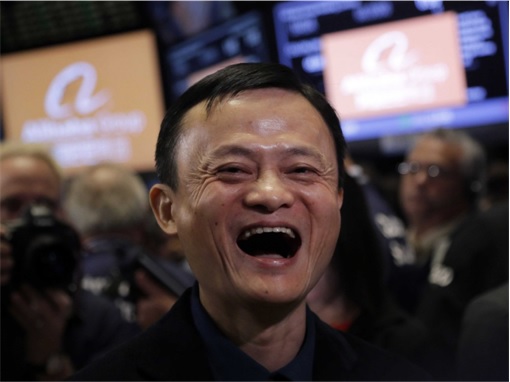
However, doing so would also make it harder for U.S. firms to win business in Asia that involves managing Chinese assets. American asset management will also find it difficult to tap Chinese investors. American investors will be the biggest loser as they are restricted from investing in companies from the world’s second biggest economy like Alibaba, Pinduoduo and PetroChina.
More importantly, Chinese companies aren’t that reliant on U.S. investors for capital. While a listing in the U.S. stock market will enrich the founders and backers, who comprise American investors, Beijing actually does not benefit from such exercise. Erasing US$2 trillion off from the American stock exchange will not make China any poorer.
A fast learner, China has quickly learned how to use Trump’s weapon – tariff – on not only American products, but also in punishing Australia. China’s trade surplus with the U.S., which Trump tried to reduce, remained near historic highs at US$32.58 billion in June. In fact, China exported US$252.86 billion worth of goods to the U.S. in the first half of 2021, compared to only US$87.94 billion in import.
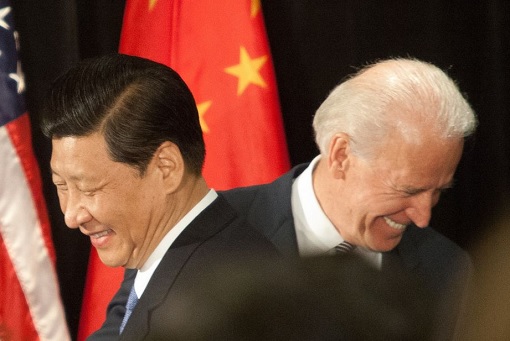
Now, Beijing has also learned the benefits of shutting down its own Chinese companies from the U.S. stock market, thanks to Trump and Biden. Stock markets in mainland China and Hong Kong have experienced heavy selling as Beijing continues its stunning crackdown on Chinese technology stocks as well as local companies listed overseas.
Social-media giant Tencent, for example, has seen its market value plunged to US$544 billion, losing about US$390 billion since its peak in mid-February. Share prices of Hong Kong-listed Alibaba, Meituan and even New Oriental Education and Technology Group have been dropping like a rock. Wall Street big boys are also affected as China said it would tighten rules for companies listed overseas.
Yes, Trump and Biden do not have to worry about closing down the Chinese companies suspected of threatening the U.S. national security, because Beijing is doing them the favour by clamping them down before they could even get listed in America. Didi Global Inc.’s decision to push ahead with its listing on the New York Stock Exchange despite objections from Chinese regulators has offended Beijing.
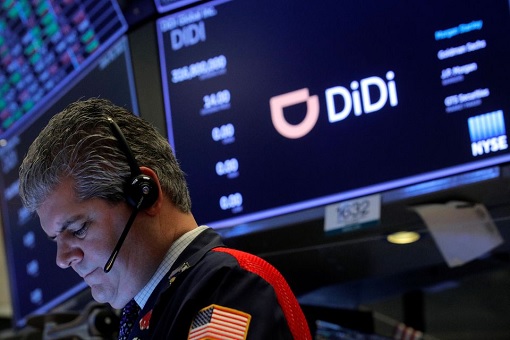
Didi, the Chinese ride-hailing giant valued at US$62 billion following an August fundraising round, is being investigated by China’s market regulator – State Administration for Market Regulation – over practices of unfairly pushing out smaller competitors in an antitrust probe. Trading at US$7.54 today, it has lost almost 50% of its IPO (initial public offering) price of US$14 a share.
The main underwriters of Didi’s offering – Goldman Sachs, Morgan Stanley and JPMorgan Chase – were all affected as the American IPO bankers scrambled to understand the Beijing’s latest move. Didi’s latest screw-up means any Chinese company that was planning for a U.S. listing will have no choice but to postpone or scrap it entirely.
Inspired by Donald Trump, Beijing has announced on July 10 that all local businesses trying to go public in another country will require approval from the Cyberspace Administration of China (CAC), a newly empowered cybersecurity regulator. Didi was raided by CAC, along with officials from at least seven departments over privacy and data security matters.
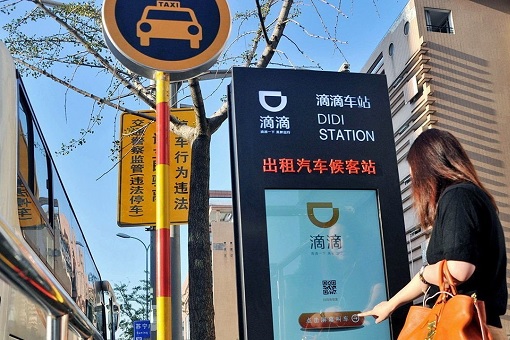
Not only the CAC spoiled Didi’s party with an investigation just 48 hours after its IPO in the U.S., but the Chinese regulator also ordered Didi’s mobile app to be pulled from app stores in China, halting new customers from joining the service of the ride-hailing giant. The CAC accuses that Didi was illegally collecting and using personal data, causing its stock price to collapse.
Playing the national security card, China justified that the U.S. government could use audit documents that Didi was required to disclose as a U.S.-listed company to gain access to data on Chinese citizens. As far as Chinese President Xi Jinping is concerned, Chinese companies should put their nation ahead of business interests as the relation between the U.S. and China deteriorates.
Chinese companies have raised more than US$100 billion from U.S. IPOs since 2012, but those money mean very little to Beijing, who has US$3.222 trillion of foreign reserves as of May this year. China can live without a single local company tapping into foreign capital in the Wall Street, but the same cannot be said about American investors trying for a piece of the Chinese market.
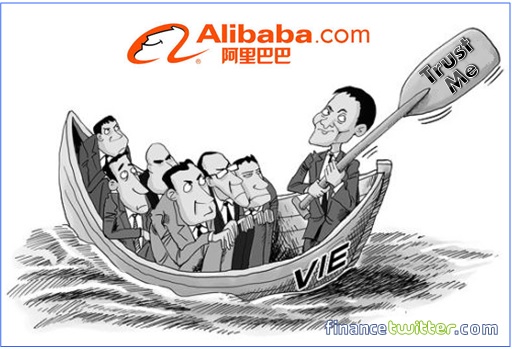
The Chinese securities regulators have been resisting demands of disclosure of audit papers from foreign countries, especially the United States. That’s because Chinese companies’ audit information may involve the confidentiality of “data and information” in China. For two decades, the country has closed one eye over a loophole that enables Chinese companies to go public.
Companies like Alibaba that managed to list in the U.S. used a loophole known as Variable Interest Entities (VIEs), which allowed it to bypass Chinese rules restricting foreign investment in highly sensitive industries such as media and telecommunications. Using the VIE, a Chinese company sets up an offshore company for overseas IPO purposes that allows foreign investors to buy its stock.
But thanks to Trump’s trade and tech war with China, only made worse by Biden, the U.S. securities regulators are demanding access to confidential data and information through a so-called audit of Chinese companies. Taking a page from Trump’s playbook, Beijing now wants to plug the loophole and will do anything to stop the U.S. from threatening China’s national security.

Beijing’s moves to crack down on listings by its companies on U.S. markets are also a clever strategy to redirect a major portion of the IPO flow to Hong Kong. China wants to have a better control of local companies, and the best way to do that is to drive them to local markets such as the Hong Kong Stock Exchange, instead of the NYSE where they have zero control.
Foreign investors who are hungry for a piece of Chinese action will have little choice but to go to the Hong Kong Stock Exchange. Imagine the US$2 trillion market capitalization from 400 U.S.-listed Chinese companies could be transferred back to Hong Kong. While Chinese companies with the VIE structure have been largely barred from mainland exchanges, Hong Kong allows them.
So far this year, 41 Chinese companies have raised US$29.4 billion in Hong Kong compared with US$14.9 billion in the same period in 2020. U.S.-listed Chinese companies including Alibaba, JD.com and Baidu have also raised more than US$37 billion since late 2019 via new listings in Hong Kong amid escalating trade war between the U.S. and China.
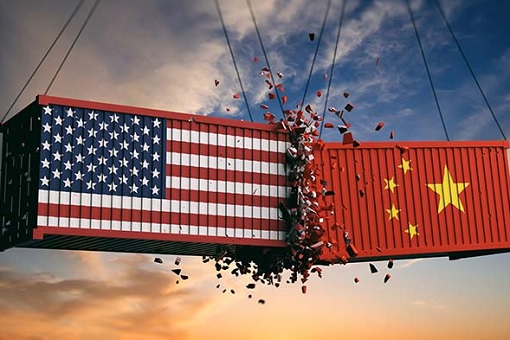
The endgame was to create an environment which would enable Chinese technology companies to list at home without jeopardizing national security, and be less reliant on the U.S. capital. China cannot constantly be at the mercy of the U.S. as President Joe Biden, like his predecessor, Donald Trump, has openly declared that China is the enemy of the United States.
Other Articles That May Interest You …
- President Xi Warns China Will Never Be Bullied – The U.S. Not Impressed China Is Building 120 Nuclear Missile Silos
- Commodities Crash – How China Releases Metal Reserves To Tackle High Prices And Shortage
- The Cold War Has Begun – Beijing “Indefinitely” Suspends China-Australia Strategic Economic Dialogue
- China Creates Digital Currency – Here’s Why It’s A Big Deal To The World’s Economy, And A Big Problem For The U.S.
- Economic Destabilization – How China Prepares For American & Japanese Military Interference In Taiwan Conflict
- Trade Surplus Of $535 Billion – Not Even The U.S. Trade War Or Covid Pandemic Can Destroy China Economic Powerhouse
- Five Eyes Alliance Plans To Teach China A Lesson With Economic Sanctions – But It’s Easier Said Than Done
- Economists Thought China’s Economy Depends On The World – But McKinsey Research Shows Otherwise
- Despite Trade War And Anti-Chinese Rhetoric, China Wants President Trump To Get Reelected In 2020 – Here’s Why
- From Trade War To Tech War – After 5G Technology, The US Aims To Cripple China’s Artificial Intelligence

|
|
July 27th, 2021 by financetwitter
|


|

|

|

|

|

|




























Comments
Add your comment now.
Leave a Reply